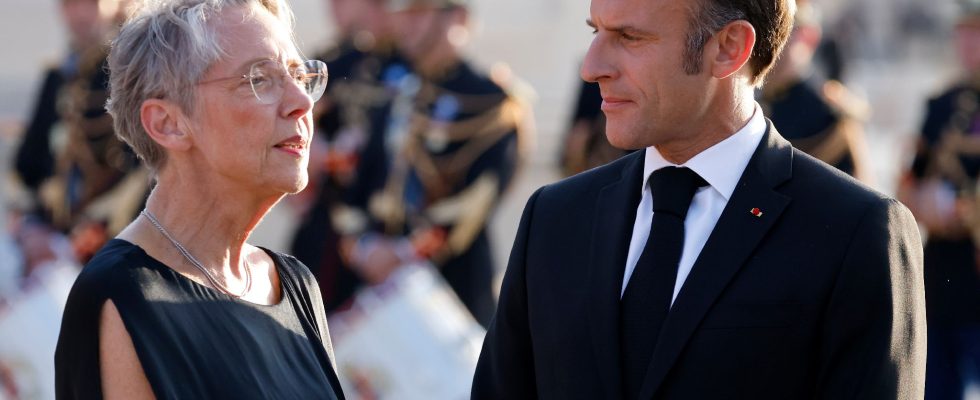Gas boiler, electric cars, end of coal-fired power stations or energy renovation of homes, Emmanuel Macron is committed to accelerating the ecological transition. The objective is to achieve a 55% reduction in France’s GHG emissions by 2030. “We are halfway there, we now have to go twice as fast,” acknowledged the President of the Republic. during his television interview Sunday evening.
The challenge is immense. It requires transforming the economy, transforming industry, supporting society, and adapting territories. To succeed in this challenge, since July 2022 the government has had a body with unprecedented powers and functioning: the General Secretariat for Ecological Planning (SGPE). A small team of around twenty people, made up of engineers, technical advisors, communicators, and reporting directly to the Prime Minister. The SGPE has been working for a year to build the transition roadmap.
Shortly after the appointment of Elisabeth Borne to Matignon, Antoine Pellion took over as head. At 39, this mining engineer is close to the Prime Minister: he was energy advisor to Ségolène Royal in Ecology when Élisabeth Borne was her chief of staff. “He is one of the only ones who speaks to her on familiar terms,” confides a ministerial advisor, thus guaranteeing the solidity of the duo. Discreet, and little known to the general public, those who come into contact with him praise his precision, his capacity for work and his pedagogy. “He is a simple person, who knows how to easily explain very complex elements,” underlines Macronist MP Jean-Marc Zulesi.
“Super-ministry” of Ecology
At the heart of government, this team appears today as the true driver of ecological planning. Regularly, the SGPE meets with ministers and their advisors to clarify modes of action and blocking points. The goal: to determine, sector by sector, the levers to achieve the emissions reduction objectives. Its job also consists of acting as a bridge between the different ministries to coordinate ecological action. “This planning work existed previously, but in isolation within the Ministry of Ecology. The new thing with the SGPE is that it is directly attached to Matignon, which gives it strong political weight,” notes Anne Bringault, from the Climate Action Network. By tackling this sprawling subject, the Secretariat could almost pass for a second “super-ministry”, in a narrower format. Even if it means, sometimes, stepping on the toes of existing administrations. “Today, the SGPE is clearly in charge of defining the new National Low Carbon Strategy,” underlines Anne Bringault, while this decarbonization roadmap was until now determined by the climate service of the Ministry of the ecological transition.
Beyond technical work on the criteria for reducing emissions from the building sector or decarbonizing transport, the SGPE teams consult and discuss with associations on environmental, governance, or social issues. “I spoke with Antoine Pellion, approximately every two or three months, during meetings on specific themes, but also sometimes during a telephone call, to exchange information on a specific subject,” confirms the representative of the Climate Action Network. A work of listening which seems to have convinced, even among the usual detractors of the State’s environmental action. “We felt a real interest in wanting to work on social issues, to make a just transition a reality,” assures Amandine Lebreton, director of the Power of Living Pact.
Translating the measures politically
The results of this work are displayed in numerous spreadsheets, diagrams and reduction percentages. A very “techno” report, which could appear indigestible for a majority of French people. “It is a fine work, which does not necessarily aim to be transmitted in this way to the general public. It is rather up to us, politicians, to seize it, for in fact a concrete object, which speaks of life daily life of our fellow citizens”, underlines Jean-Marc Zulesi.
It remains to be seen how the implementation of these measures will result. Will Emmanuel Macron be able to convince the French of their necessity? This is the whole challenge of the exercise on Monday, September 25, when the president will present the strategy, the outlines of which his Prime Minister Elisabeth Borne has already detailed to the parties and civil society.
